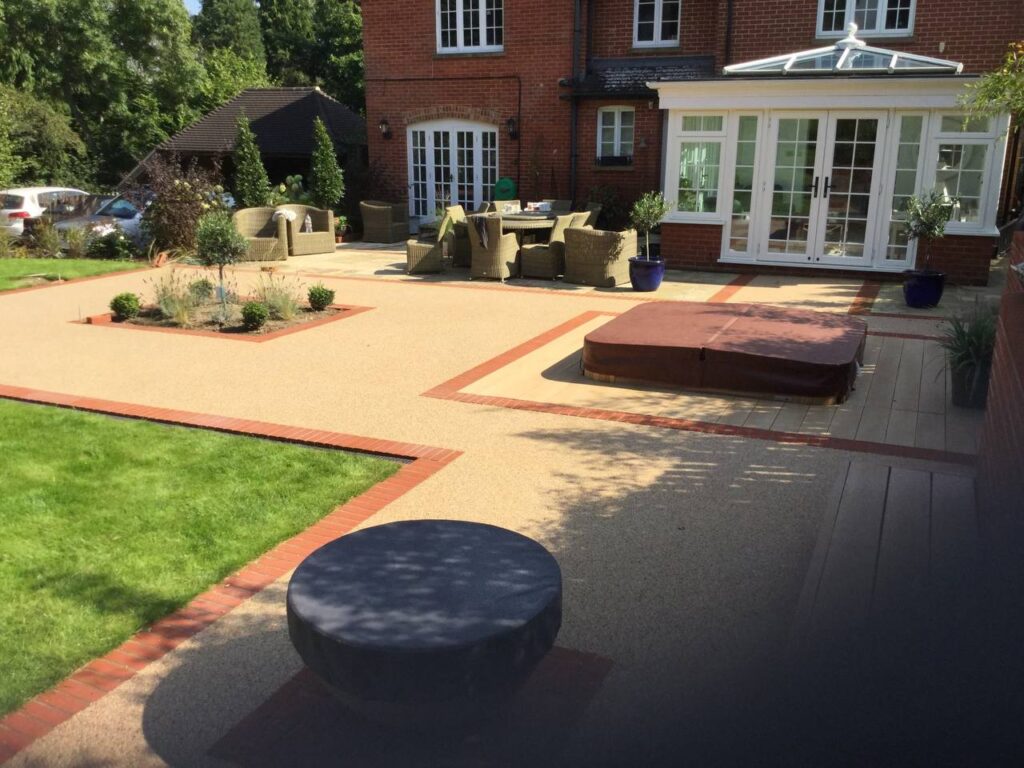The Problem With Poorly Installed Block Paving
Block paving is one of the most popular choices for driveways, patios, and paths across the UK—and for good reason. When done properly, it offers excellent durability, aesthetic appeal, and easy maintenance. However, poor installation can lead to a wide range of problems that not only ruin the appearance of your property but also cost more to fix in the long run.
At NS Driveways Leatherhead, we’ve seen firsthand the consequences of substandard block paving work throughout Leatherhead and Surrey. In this blog, we’ll explore the common issues caused by improper installation and explain why investing in quality craftsmanship from the outset is always the smarter choice.
What Is Poorly Installed Block Paving?
Poorly installed block paving typically results from shortcuts taken during the ground preparation, incorrect laying techniques, or the use of inadequate materials. While a newly laid surface might look fine at first glance, faults will often appear within a matter of months—particularly once the weather takes its toll.
Unlike temporary surface issues, structural paving problems usually stem from hidden mistakes made beneath the surface, and they can be much harder (and more expensive) to resolve once the damage is done.
Common Problems With Bad Block Paving
There are several tell-tale signs that block paving hasn’t been installed correctly. If you notice any of the following issues on your driveway or patio, it may be time to consult a professional.
Uneven Surfaces and Sinking
One of the most common signs of poor workmanship is an uneven or sunken surface. This is usually caused by improper base preparation or inadequate compaction. If the sub-base isn’t solid and evenly distributed, the weight of vehicles or foot traffic will gradually cause sections to shift or dip.
Water Pooling
A correctly installed block paving surface should allow water to drain away effectively. If you see puddles forming after rainfall, the surface likely lacks the correct fall or drainage system. Over time, standing water will weaken the structure, encourage weed growth, and even lead to frost damage in colder months.
Loose or Wobbly Blocks
Loose blocks are often the result of insufficient jointing or failure to secure the paving properly during installation. Once one or two blocks become unstable, the problem can quickly spread, causing a trip hazard and creating gaps for weeds and debris.
Weed Growth
While no paving is completely immune to weed growth, poor installation can make the problem significantly worse. Inadequate jointing and a poorly sealed surface allow soil and organic matter to collect between the blocks, providing the perfect breeding ground for weeds and moss.
Cracking and Edge Movement
If the edging restraints haven’t been correctly installed or the base hasn’t been compacted thoroughly, the edges of the paved area can shift outward over time. This leads to unsightly gaps, cracking, and loss of the original shape of the paved area.
The Impact on Property Value and Safety
Beyond the obvious aesthetic problems, poorly laid block paving can affect the value and safety of your property. First impressions count, and a cracked or uneven driveway is hardly welcoming to visitors—or prospective buyers.
Even more importantly, loose or unstable paving can become a hazard, especially for older people, young children, or anyone with mobility issues. In commercial or rental properties, these issues can also raise concerns about liability.
The Importance of Proper Ground Preparation
The foundation is arguably the most important aspect of a block paving installation. Without a properly excavated and compacted sub-base, the surface will inevitably shift over time. This is why experienced professionals spend time ensuring the groundwork is done correctly before a single block is laid.
At NS Driveways Leatherhead, we use industry-approved techniques and quality materials to create a stable foundation that supports the longevity of the finished surface. Every step—from excavation and edging to sand bedding and block alignment—is done with precision to ensure durability and visual appeal.
Key steps in proper block paving installation:
- Full excavation to the correct depth
- Sub-base made from compacted MOT Type 1 stone
- A layer of sharp sand, evenly screeded
- Accurate laying of blocks with tight joints
- Proper edge restraints to prevent movement
- Jointing and final compaction for a smooth, secure finish
Why It Pays to Choose Professionals
It can be tempting to go with the cheapest quote when installing block paving, but poor workmanship will cost far more in repairs, replacements, and disruption down the line. Skilled installers bring not only the right tools and materials but also the knowledge to adapt to your site conditions, whether it’s a sloped drive, soft ground, or complex layout.
At NS Driveways Leatherhead, we take pride in delivering block paving that lasts—not just looks good for the first few months. Our team ensures each project meets the highest standards, offering our clients reliable surfaces that enhance their property for years to come.
Conclusion
Poorly installed block paving may not always reveal its flaws straight away, but when problems do emerge, they can cause serious inconvenience and unnecessary expense. Uneven surfaces, weed intrusion, drainage issues and movement all point to poor groundwork or rushed installation.
At NS Driveways Leatherhead, we specialise in high-quality paving that’s built to last, using proven methods and materials suited to your property’s needs. If you’ve had trouble with a previous installation or you’re planning a new project, contact our experienced team today. Let’s make sure your paving stands the test of time and adds genuine value to your home.
Call us on: 01372 679 098
Click here to find out more about NS Driveways Leatherhead
Click here to complete our contact form and see how we can help with your driveways needs.

